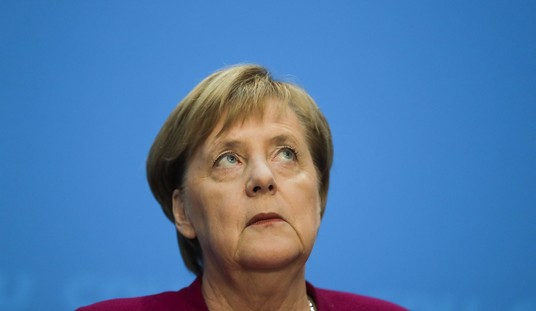As you may have already heard, President Trump is planning on pressing China this week via a new executive order looking into their trade situation. It might seem a bit on the obvious side, but it’s hard to ignore the fact that he’s attempting to use this as some leverage to get them to crack the whip on North Korea a bit harder. (Reuters)
U.S. President Donald Trump will call on Monday for his chief trade adviser to investigate China’s intellectual property practices, website Politico reported, citing an unnamed administration official.
Trump had been expected to order a so-called Section 301 investigation under the 1974 Trade Act earlier this month, but action had been postponed as the White House pressed for China’s cooperation in reining in North Korea’s nuclear program.
This investigation (assuming he pulls the trigger) has more to do with intellectual property and copyright violations than direct trade. Still, it’s a way of getting their attention. But aren’t they going along with the program and enforcing the sanctions? They certainly voted for it at the United Nations and claimed that they were onboard with the program.
Yes and no. For the specific trade deals in question, China may very well be in compliance. But it turns out there are some holes in the rules big enough to drive a truck through. And in this case, the truck is full of textiles in the form of cheaply produced shirts, pants and other garments. This new report from Reuters claims that China’s trade with North Korea this year not only hasn’t backed off, but it’s actually increased. While they throttle off certain goods which are prohibited under the sanctions, China is taking advantage of cheaper labor across the border among the destitute people of North Korea and having them produce the goods for them.
Chinese textile firms are increasingly using North Korean factories to take advantage of cheaper labor across the border, traders and businesses in the border city of Dandong told Reuters.
The clothes made in North Korea are labeled “Made in China” and exported across the world, they said.
Using North Korea to produce cheap clothes for sale around the globe shows that for every door that is closed by ever-tightening U.N. sanctions another one may open. The UN sanctions, introduced to punish North Korea for its missile and nuclear programs, do not include any bans on textile exports.
First, we would be remiss if we didn’t point out the rather obvious irony of China outsourcing their manufacturing to find cheaper labor. That’s been the complaint in the United States for as long as I can remember and I’m no spring chicken.
But they truly are being too clever by half. It sounds as if they are following the rules by strictly engaging in the trade of products which are not forbidden under the sanctions. As the Reuters report notes, it’s a case of one door closing and another immediately opening. But there’s a bit more to this story than a simple re-swizzling of shipping container contents. Just as we have laws about what products may or may not have the “Made in the USA” label on them, those “Made in China” labels should fall under Title 19, Part 134 on the subject of specific regulations for country of origin markings. In order to export to the United States, products are supposed to be clearly labeled in plain English understandable by the ultimate purchaser as to where the product was made. Failure to do so can jeopardize your trade deals.
It’s possible that China is getting around this by claiming that the original cloth is made in their country and it’s just shipped out for “assembly” in North Korea. I’m not any sort of expert in international law. But if it looks too dodgy, this is one more avenue which the White House could explore while sorting out the carrot from the stick in this situation with North Korea and China.







Join the conversation as a VIP Member